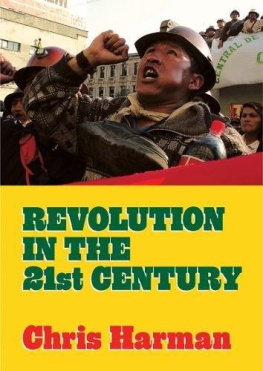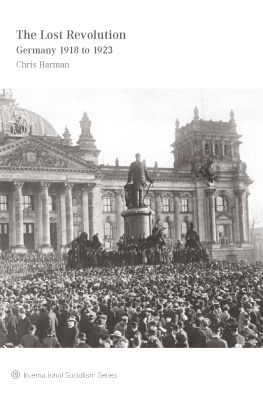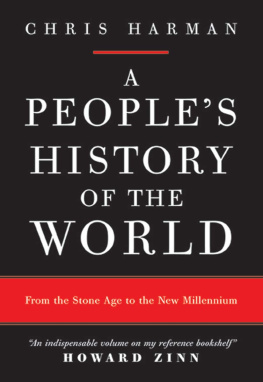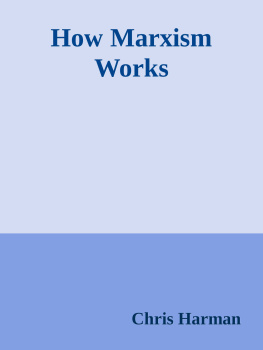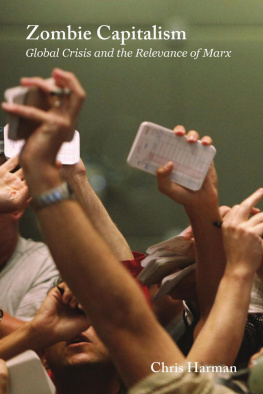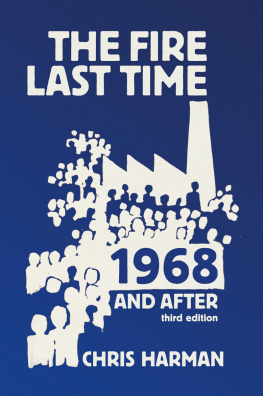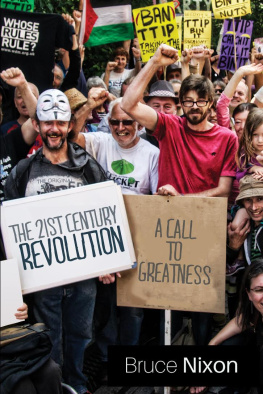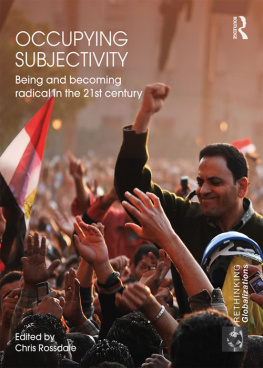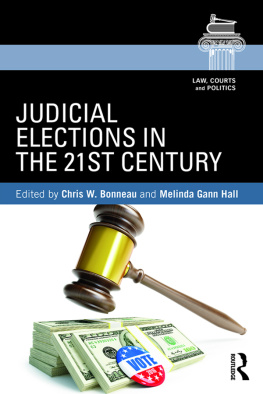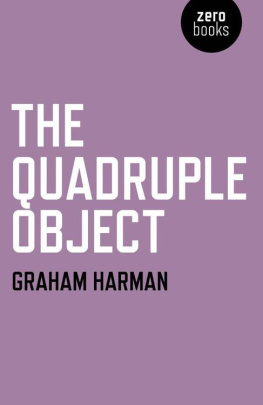Chris Harman - Revolution in the 21st Century
Here you can read online Chris Harman - Revolution in the 21st Century full text of the book (entire story) in english for free. Download pdf and epub, get meaning, cover and reviews about this ebook. year: 2007, publisher: Marxists Internet Archive, genre: Politics. Description of the work, (preface) as well as reviews are available. Best literature library LitArk.com created for fans of good reading and offers a wide selection of genres:
Romance novel
Science fiction
Adventure
Detective
Science
History
Home and family
Prose
Art
Politics
Computer
Non-fiction
Religion
Business
Children
Humor
Choose a favorite category and find really read worthwhile books. Enjoy immersion in the world of imagination, feel the emotions of the characters or learn something new for yourself, make an fascinating discovery.
- Book:Revolution in the 21st Century
- Author:
- Publisher:Marxists Internet Archive
- Genre:
- Year:2007
- Rating:4 / 5
- Favourites:Add to favourites
- Your mark:
- 80
- 1
- 2
- 3
- 4
- 5
Revolution in the 21st Century: summary, description and annotation
We offer to read an annotation, description, summary or preface (depends on what the author of the book "Revolution in the 21st Century" wrote himself). If you haven't found the necessary information about the book — write in the comments, we will try to find it.
Revolution in the 21st Century — read online for free the complete book (whole text) full work
Below is the text of the book, divided by pages. System saving the place of the last page read, allows you to conveniently read the book "Revolution in the 21st Century" online for free, without having to search again every time where you left off. Put a bookmark, and you can go to the page where you finished reading at any time.
Font size:
Interval:
Bookmark:
Chris Harman
Revolution in the 21st Century
First published July 2007 by Bookmarks Publications.
Bookmarks Publications.
Marked up by Einde OCallaghan for the Marxists Internet Archive.
Converted to various eBook formats by Leah Drake, January 2021
Available online at https://www.marxists.org/archive/harman/2007/revolution/
Chris Harman ( 8 November 1942 7 November 2009 ) author ed A Peoples History of the World (Bookmarks 1998), Economics of the Madhouse (Bookmarks 1995) and The Lost Revolution: Germany 1918 to 1923 (Bookmarks 1982). He wa s the editor of International Socialism and wa s a leading member of the Socialist Workers Party (www.swp.org.uk).
Table of Contents
The fall of the Berlin Wall and collapse of the decaying dictatorships of Eastern Europe and the Soviet Union in 1989-91 supposedly ended the struggle to replace capitalism with something better. Yet the first years of this century have seen a new spirit of resistance across the world.
It began just before the new century itself with the demonstrations around the World Trade Organisation meeting in Seattle in November 1999. The slogan Another world is possible resonated across continents, with ever larger and more militant protests in Prague, Melbourne, Dakar, Gothenburg and Genoa. The resistance then merged into the biggest movement against war the world has ever seen tens of millions taking to the streets of major cities on 15 February 2003 while in Latin America, popular uprisings overthrew governments from Argentina to Ecuador.
The resistance has grown deeper and drawn in wider numbers of people everywhere. In 2005 voters in France and the Netherlands threw established politics into turmoil by rejecting a European constitution that aimed to slash restraints on market forces. Later in the same year immigrant communities across France exploded in rage. 2006 saw French students leading millions of workers in successful protests against attempts to scrap the employment rights of young people, Venezuelas president Hugo Chavez declared his intention to implement socialism for the 21st century, and an uprising toppled the government of Nepal. In Oaxaca, Mexico, a teachers strike turned into a rebellion that drove the army and police from the city, while students in Chile and Greece followed the French example. By the time you read this, the resistance will have found fresh forms of expression and shaken the established order in new ways and the numbers beginning to seek political answers outside those offered by the existing system will have grown.
At the beginning of the 1990s we were promised a new world order and told we had reached the end of history. Capitalism was the only option for humanity, it was said, but there was no cause for worry because a new economic paradigm had banished economic crisis.
How quickly the illusions were shattered. For most people, even in more prosperous parts of the world, life has become more burdensome and less secure. An economic crisis at the beginning of the new century cost millions of jobs in the US, which an economic revival has not restored. Japan has suffered 12 years of economic stagnation, and the economies of continental Europe have proved incapable of denting an unemployment rate of 10 per cent. In the US, the richest society in history, 90 per cent of the population have seen no improvement in living standards in the past 30 years and half are worse off. This is despite an increase in the time spent at work by the average male worker in the US of 160 hours a year equivalent to about one month. For women workers it is worse on average they spend an additional 200 hours at work in a year. In Germany, the five million on the dole have had their benefits cut. In France, one-fifth of young people are jobless and others can find nothing more than insecure McJobs. In Britain, we face the longest working hours in Europe, yet more than half the children across swathes of London grow up in poverty.
Life in much of the rest of the world is incomparably worse. In sub-Saharan Africa average living standards have fallen steadily for 30 years. Hundreds of millions struggle each day to obtain the 2,000 calories a day required for life. There are periodic famines and tens of thousands of children die each day from malnutrition or diseases that have long been treatable diarrhoea, dysentery, tuberculosis, malaria. In Latin America, poverty is not just the fate of millions in Nicaragua, Guatemala, Ecuador, Bolivia and Peru who have been poor for generations; it is the fate of tens of millions in the more economically advanced countries Argentina, Mexico and Brazil.
Apologists for the system talk of the growth of China and India, omitting to mention that prosperity for the 10 or 20 per cent of people who make up the middle classes leaves hundreds of millions in desperate poverty in the countryside. Hence, 150 million Chinese migrate to the cities each year to traipse the streets as casual labourers, and an epidemic of suicide convulses communities of indebted farmers in the more prosperous states of India.
Poverty is not the only nightmare for a huge section of the worlds people. Many suffer the barbarity of modern warfare. The proclamation of the New World Order has been followed by one war after another, with the US taking the lead in pouring death and destruction on cities halfway around the world. The most modern conventional weapons are used, supplied by companies that boast of their competitive success in selling them. The casualties are overwhelmingly civilians blown apart by bombs dropped from 30,000 feet, blasted by guns firing thousands of rounds a minute, buried in their homes by rockets and tanks.
When people direct bombs against civilians in the cities of the west, they are denounced as evil terrorists and abhorrent to civilisation. Yet horrors 1,000 times worse are inflicted on civilians elsewhere in the world. Our leaders warn of weapons of mass destruction, while insisting on their right to stockpile nuclear warheads and construct missile systems. People from an Islamic background who turn to religious-based politics in reaction to foreign domination and devastation are denounced, but a US president can launch wars on Afghanistan and Iraq while claiming he obeys the will of God.
Alongside the old horrors of poverty and war, the 21st century brings a new one climate change. If unchecked, the rise in temperatures caused by greenhouse gases from carbon fuels will melt the polar ice caps, change ocean currents and weather patterns, turn fertile areas to desert, bring crop-destroying storms and flood immense low-lying regions such as Bangladesh, the Nile Delta and Florida. Hurricane Katrina, which came close to destroying New Orleans, gave a foretaste of what to expect. Most of the worlds governments admit something must be done, but retreat from measures to curtail emissions lest any group of capitalists lose out.
All these evils have a single cause in the capitalist system. More than two billion people work each day to produce more wealth than there has ever been more than enough to provide sufficient food for everyone and to overcome poverty. Yet people go hungry in one part of the world while farmers elsewhere are paid to leave fields uncultivated. The organisation of production in a system based on rival companies, each motivated by the drive to compete for profit, is the root cause.
At the top of the biggest companies are a select group of extraordinarily wealthy individuals. There are about 350 billionaires in the world. The top 200 have more than $1 trillion ($1,000 billion) in assets. The three wealthiest are worth as much the 48 poorest countries combined. Such individuals have a controlling stake in the multinational corporations, about 200 of which run by perhaps 1,500 people have a combined turnover equal to more than one-quarter of the world output. Of these 200 multinationals, 168 are based in five countries the US, Japan, Germany, the UK and France. The five biggest, run by perhaps 40 people, have a greater output than the Middle East and Africa combined, and double the output of South Asia.
Next pageFont size:
Interval:
Bookmark:
Similar books «Revolution in the 21st Century»
Look at similar books to Revolution in the 21st Century. We have selected literature similar in name and meaning in the hope of providing readers with more options to find new, interesting, not yet read works.
Discussion, reviews of the book Revolution in the 21st Century and just readers' own opinions. Leave your comments, write what you think about the work, its meaning or the main characters. Specify what exactly you liked and what you didn't like, and why you think so.

